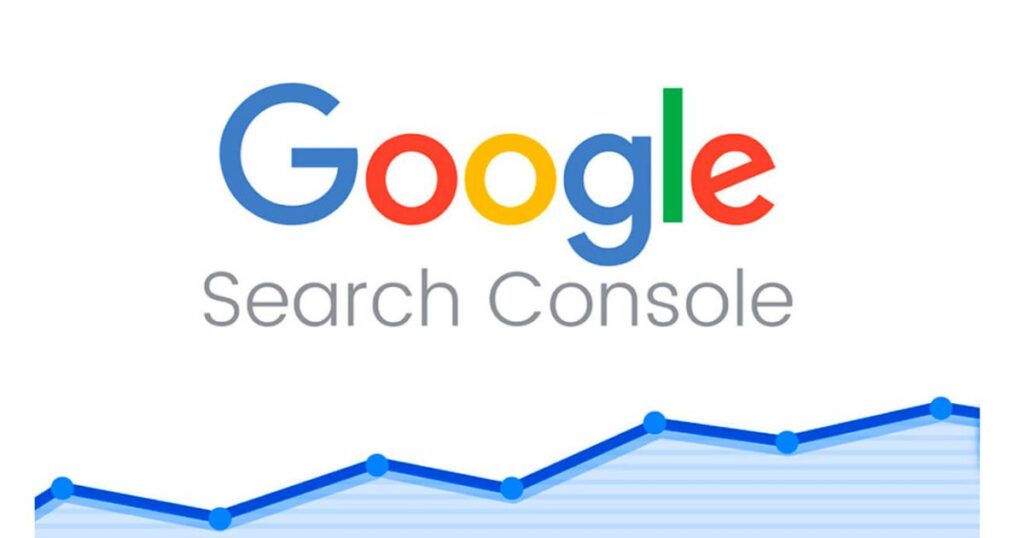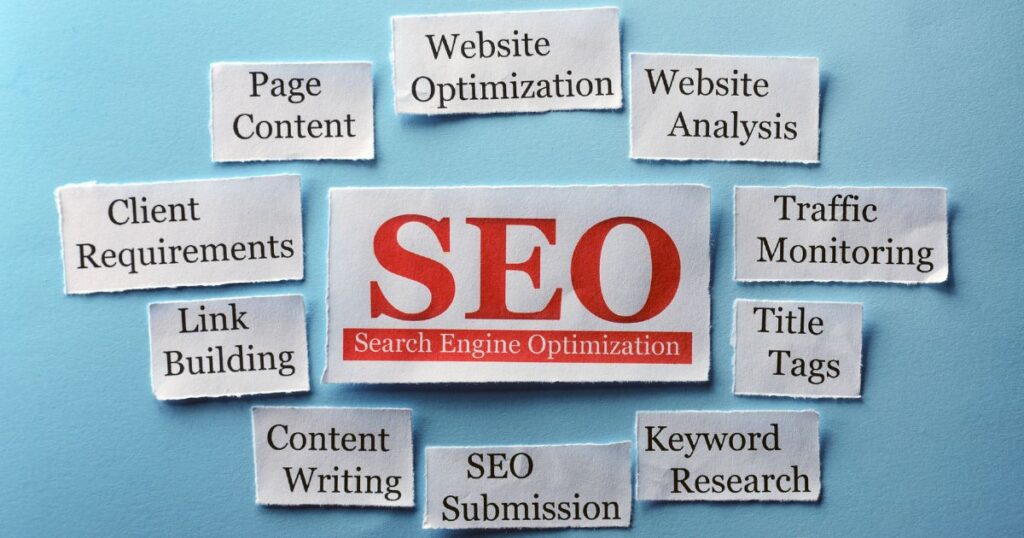
SEO Ranking Factors: The Ultimate Guide
In the ever changing world of digital marketing SEO ranking factors are key to how well your website performs on Google. If you want to increase your website’s visibility and improve your google rankings, then understanding these factors is crucial. In this guide we will go into the nitty gritty of SEO ranking factors so you can optimise your web pages properly.
What are SEO ranking factors?
SEO ranking factors are the criteria search engines use to rank web pages in search results. These factors help search engines determine the relevance and quality of a webpage for a search query. The ultimate goal of search engines is to deliver the most relevant and useful content to users and understanding these factors is key to getting higher google search rankings.

Google’s Algorithm
Google’s algorithm is a complex system that retrieves data from its index and delivers the best results for a query. It considers many factors, called “ranking factors” to rank web pages. The algorithm is updated regularly to improve user experience and search accuracy so it’s important for SEO’s to stay up to date with these changes.
Google Ranking Factors
Understanding the major Google ranking factors is key to optimising your website. Let’s look at some of the most important factors that affect your search ranking.
Core Web Vitals
Core Web Vitals are a set of metrics that measure a webpage’s loading, interactivity and visual stability. These metrics include:
- Largest Contentful Paint (LCP): Measures loading. Should occur in under 2.5 seconds of the page starting to load.
- First Input Delay (FID): Measures interactivity. Should be under 100ms.
- Cumulative Layout Shift (CLS): Measures visual stability. Should be under 0.1.
These metrics are important for user experience and Google considers them as ranking factors. A case study by Search Engine Journal found that websites that improved their Core Web Vitals saw a 15% increase in search visibility.

Mobile Friendliness
With the rise of mobile devices mobile friendliness is a major ranking factor. A mobile friendly website means users have a smooth experience regardless of the device they are using. Google’s mobile first indexing means the mobile version of your site is the primary version for ranking purposes, and this shift affects how google ranks search results. According to Statista over 54% of global website traffic comes from mobile devices so mobile optimisation is key.
Domain Authority
Domain authority is a metric that predicts a website’s ability to rank on search engines. It’s influenced by factors like the age of the domain, its popularity and the number of high quality inbound links. Whilst not a direct ranking factor a high domain authority can improve your site’s ranking potential. Websites like Moz have tools to help you measure and improve your domain authority.
Page Speed and Site Speed
Page speed is a key factor for user experience and SEO. Slow loading pages can result in high bounce rates and negatively impact your search rankings. Google’s PageSpeed Insights tool can help you measure and improve your site’s speed. Faster sites provide a better user experience and will rank higher in search results. A report by Think with Google found that a 1 second delay in mobile load times can impact conversion rates by up to 20%.

Content Quality and User Interaction
Content quality is key in SEO. Search engines want to show users the most relevant and valuable content. High quality content is informative, engaging, and matches the user’s search intent, making your web page more valuable to users. User interaction like click through rates and dwell time also affects rankings. Engaging content means users spend more time on your site and signals to search engines that your content is valuable. A study by Content Marketing Institute found 72% of marketers think content creation is the most effective SEO tactic.
Technical SEO and Its Impact on Rankings
Technical SEO is the optimisation of a website’s technical elements to improve its search engine ranking. Let’s take a look at some of the key components of technical SEO that can improve your performance in organic search results.
Structured Data
Structured data helps search engines understand your webpage’s content better. By using schema markup you can add extra context to your content and potentially increase your search visibility with rich snippets. For example a recipe website using structured data can have its recipes appear in a carousel on Google search results and get more clicks.
Website Speed
As mentioned earlier website speed is key for user experience and SEO. Optimising server response times, compressing images and minimising JavaScript can make a big difference to your site’s speed and search rankings. A case study by Pingdom found that reducing page size by 30% resulted in a 50% reduction in load times.
Secure and Accessible Websites
HTTPS is a ranking factor. A secure website not only protects user data but also builds trust with your audience. Having an accessible website with a clear structure and XML sitemap helps search engines to crawl and index your pages properly. A survey by BrightLocal found 84% of users would abandon a purchase if data was sent over an insecure connection.

Content SEO Ranking Factors
Content is still king in the SEO world. Let’s take a look at the key content related factors that affect SEO rankings.
Relevant Content and Search Intent
Creating content that matches search intent is key. Understanding what users are looking for and providing the answers is crucial for ranking well. Use tools like Google’s Keyword Planner to find relevant keywords and topics. For example a blog about healthy recipes should focus on keywords like “quick healthy meals” or “low calorie snacks” to match user intent.
Latent Semantic Indexing
Latent Semantic Indexing (LSI) is using related keywords and phrases to boost content relevance. This helps search engines understand your content better and increase its chances of ranking for related queries. For example an article on “digital marketing” might include LSI keywords like “SEO strategies”, “content marketing” and “social media advertising”.
Meta Title Tags and Meta Descriptions
Meta title tags and meta descriptions are on-page SEO essentials. They provide a summary of your content to search engines and users. Writing compelling and relevant titles and descriptions can increase your click through rate and search visibility. A/B testing different meta descriptions can help you find out which one gets more clicks.

How Links Affect SEO Rankings
Links are a big part of SEO, they affect a site’s authority and relevance. Let’s take a look at the types of links that affect SEO rankings.
Internal Links
Internal links connect different pages within your website, improving navigation and user experience. They help search engines understand your site structure and distribute page authority properly. A well structured internal linking strategy can guide users to related content and increase their time on site.
Inbound Links
Inbound links or backlinks from other websites are a big indicator of your site’s authority. High quality backlinks can boost your search rankings. Focus on building relationships with prominent websites to get valuable links. According to Ahrefs 91% of pages never get any organic traffic from Google, mainly because they don’t have any backlinks.
Link Building
Link building is getting backlinks from other websites. Good link building strategies include guest blogging, creating shareable content and reaching out to industry influencers. A good link building campaign can increase your site’s authority and search rankings.
External Links
Linking to other websites can increase your content’s credibility and authority. Make sure the external links you use are relevant and add value to your content. For example citing research from a credible source can make your content more trustworthy.

User Experience as a Ranking Factor
User experience is big in SEO. Let’s see how it affects rankings.
User Interaction
Bounce rate, dwell time and click-through rate are the metrics that give us an idea of user interaction. Engaging content that makes users explore your site can improve these metrics and in turn improve your rankings. A Forrester report found that a well designed UI can increase conversion rate by up to 200%.
Mobile Devices
With mobile search on the rise, having a seamless experience on mobile devices is a must. Responsive design, fast loading times and easy navigation is the key to a good mobile experience. Use Google’s Mobile Friendly Test tool to check your site’s mobile optimization.
User-Friendly Website Page
A user-friendly website page is easy to navigate, with clear calls to action and simple design. Simplifying the user journey increases engagement and reduces bounce rates. User-friendly design is not just about looks; it’s about understanding user behavior and expectations to create a simple experience.

Using Google Search Console for SEO
Google Search Console is a great tool to monitor and improve your website’s SEO. Here’s how.
Search Queries
Google Search Console gives you insights into the search queries that drive traffic to your site. Analyze these queries to understand user intent and optimize your content. Identify high impression queries with low click-through rates to find opportunities to optimize.
Search Optimization
The platform gives you valuable data on your site’s performance – impressions, clicks and average position. Use this data to find areas to improve and track your SEO efforts. Review your performance reports regularly to guide your SEO strategy.
Search Results
By reviewing search results and click-through rates you can find opportunities to improve your content and your site’s ranking positions. Google Search Console’s performance report allows you to filter data by query, page and country to get a full view of your site’s performance.

Keyword Research and SEO
Keyword research is the base of SEO. Let’s see how it helps you optimize your website.
Finding and Using Target Keywords
Finding the right target keywords is crucial to match your content with user intent. Use tools like SEMrush or Ahrefs to find high volume, low competition keywords relevant to your niche. Consider long-tail keywords which have less competition and higher conversion rates.
Exact Keywords and Variations
While exact keywords are important, using variations and related terms makes your content flow naturally. This is how search algorithms work – they look for context and relevance. For example if your target keyword is “digital marketing strategies” consider variations like “online marketing tactics” or “internet marketing plans”.
Relevant Keywords and Search Engine Ranking
Using relevant keywords in your content makes it visible in search engine results. Make sure your keywords are naturally integrated in your content to avoid keyword stuffing. A balanced keyword strategy improves readability and user experience.

Common SEO Mistakes and How to Avoid Them
Avoiding common SEO mistakes is crucial for a healthy website. Let’s see some mistakes to avoid.
Keyword Stuffing and Over-Optimization
Keyword stuffing is overusing keywords to manipulate search rankings. This can lead to penalties and hurt your site’s ranking. Focus on creating natural content. Google’s algorithm can detect and penalize keyword stuffing.
Exact Match Domains
Exact match domains were once a popular SEO tactic but now they are not as effective. Focus on building a strong brand and creating high quality content instead. A memorable domain name that reflects your brand can be more beneficial in the long run.
Content that Matches User’s Search Intent
Making sure your content matches user’s search intent is crucial to drive engagement and improve search rankings. Update and optimize your content regularly to meet evolving user needs. Analyze user behavior through tools like Google Analytics to get insights on search intent.

SEO Ranking Factors in the Future
SEO is a moving target and staying ahead of the trends is key to success. Let’s see some future SEO ranking factors.
Google’s Search Algorithm Changes
Google’s search algorithms are changing to improve user experience and search accuracy. Stay informed about these changes is crucial to adapt your SEO strategy. Follow Google’s Webmaster Central Blog to stay updated.
Technical SEO and Content Quality
As search engines get smarter technical SEO and content quality will continue to be a major ranking factor. Focus on optimizing your site’s technical elements and create valuable content. High quality content that answers users’ questions will remain the priority.
Other Search Engines
Other search engines like Bing and Yahoo may also adapt to changing user behavior and search patterns. Understanding these adaptations can give you more opportunities to optimize your website. Diversify your SEO strategy to include other search engines to expand your reach.
Conclusion: How to Get Higher SEO Rankings
In conclusion, understanding and optimizing for SEO ranking factors is key to increasing your website’s visibility and organic traffic. Focus on core web vitals, content quality, technical SEO and user experience to improve your site’s performance and get higher search rankings. Remember SEO is an ongoing process that requires continuous effort and adaptation to stay ahead.

SEO Ranking Factors FAQs
What are the Top Google Ranking Factors Today?
Core web vitals, mobile friendliness, domain authority, page speed and content quality are the top Google ranking factors. These all impact your website’s search rankings.
How Do I Improve My Website’s Search Engine Ranking?
Create high quality content, optimize technical SEO, build relevant links and improve user experience.
What Tools Can I Use to Monitor and Improve SEO?
Use tools like Google Analytics, Google Search Console, SEMrush and Ahrefs to monitor and improve your website’s SEO performance.
How Often Do Google’s Ranking Factors Change?
Google’s ranking factors are changing to improve search accuracy and user experience. Stay informed about these changes is crucial to maintain a competitive SEO strategy.
Can a WordPress Site Rank High?
Yes, WordPress site can rank high with proper optimization. Use SEO plugins, optimize your content and make sure your site is mobile friendly and fast.
How Can Your SEO Service in Marbella Improve My Website’s Rankings?
Our SEO service in Marbella has successfully transformed both new domains and older websites from 0 views to thousands in a short time. Check out our detailed SEO service page to see how we can boost your website’s visibility and traffic.

Leave a Reply